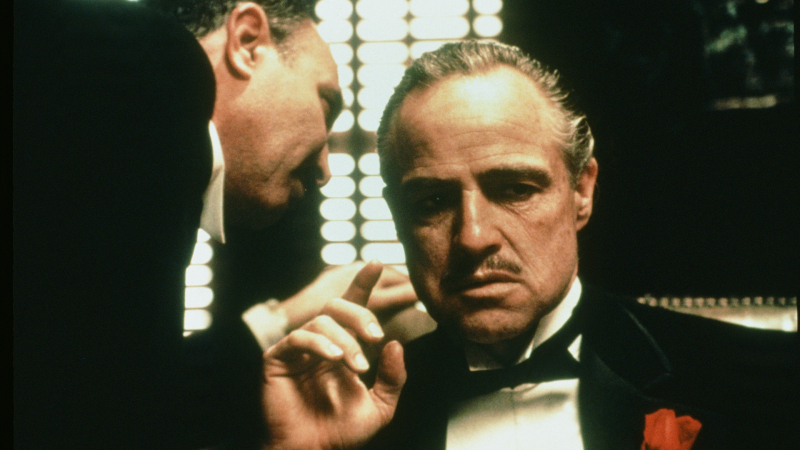The Godfather: 50 Years of Influence
03 March 2022
As it celebrates its 50th anniversary, LUMI programmer Fionntán Macdonald looks at the influence The Godfather has had on cinema.

The year is 1972, New Hollywood is in its infancy, the ‘film school brats’ are cutting their teeth and one of the greatest film’s of all time is about to be released.
The cultural impact of Francis Ford Coppola’s The Godfather (1972) can not be understated. A familial epic that spans decades, the sprawling tragedy of the Corleone crime family faced a production as rocky as the roads of Sicily but endured through difficulty, went to the mattresses, and crafted an almost unmatched legacy.
Now, 50 years on from its momentous release, one of cinema’s most historically significant productions has entered the pantheon of de-facto classics while defining an entire genre, a dozen storied careers and the very word “gangster”.
Imagine the scene: staked out, guns at the ready, a group of detectives prepare for a raid. The criminal’s hideout stands before them as they steel themselves to ram the door, a mafioso lurking within. Detective Frank Friel took part in dozens of these raids, a member of a specialised task force in Philadelphia for decades, and reported one constant commonality between them all: a VHS copy of The Godfather on each gangster’s shelf. So ubiquitous is this classic’s incomparable legacy.
While one could write a book about The Godfather (and many have), an entire library would be required to fully understand the scope of this film’s influence. To even fathom the imprint this screenplay had on the pop culture lexicon would require half a dictionary’s worth of quotations alone. The film’s manuscript was, of course, a collaboration between Coppola and Mario Puzo who authored the original novel (itself a best-seller) but the adaptation stumbled early when Coppola was discouraged by a tawdry subplot. Thankfully an unexpected consiglieri emerged: Coppola’s personal friend George Lucas. Seeing the potential of the adaptation, Lucas encouraged Coppola to return to the novel and find something, anything, that he could work with. To Coppola’s eternal credit he picked it up again and identified the foundation on which they could build the film: the family.
The result was more akin to Shakespearean tragedy than gangster pulp as what spoke most to Coppola was the relationship between Michael (Al Pacino) and his father, the titular and enduringly iconic Godfather: Don Vito Corleone (Marlon Brando). This thematic centre and structural integrity focuses the sprawling narrative and results in a much more intimate tale than expected from such an epic.
The rise and fall story is not only a staple of American cinema but of the gangster genre, yet the genius of this film’s structure is the contrast between the fall of the Don and the rise of his son and ultimate successor: agonising in that Vito never wanted his youngest son to become a man like him. Michael was the best of the Corleones, a war hero and college graduate, with hopes outside of the mafia. Yet, when his family is threatened, Michael finds a fearsome will within and descends into the darkness of his soul. It is of great significance that this central relationship was somewhat mirrored by the career trajectories of the film’s two leads.
“Marlon Brando will never be in this picture!” was the infamous declaration of on of the film’s producers (channelling something of the Jack Woltz character) who hopefully didn’t wake with a horse’s head beside them. Brando was a Hollywood leper in ’72, a faded star who’s troublesome reputation preceded him and who faced being forced out completely by more youthful competitors (the comparisons speak for themselves). Pacino, conversely, was the untried but adept performer who was denied entry into the production on the ground that he had only two feature credits before this. Yet Coppola was so confident in his instincts that when his casting choices were questioned he risked premature dismissal (the first of half a dozen threatened firings that continued deep into editing) to secure his preferred players.
This was the impetus for one of Hollywood’s most infamous casting tapes as Coppola conspired with Brando to create a character so definitive that he could not be denied. Stuffing his face with tissues, slicking his hair back with boot polish and disappearing completely into a roll he had no guarantee of getting, Brando created Don Corleone as we know him today and became an icon.
The Godfather was an alchemic reaction. A series of controlled disasters that conspired to produce gold and even 50 years on it makes you an offer you simply cannot refuse.
- written by LUMI programmer Fionntán Macdonald




